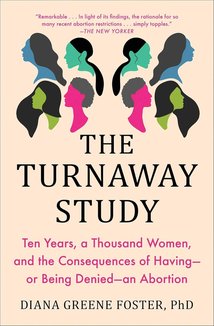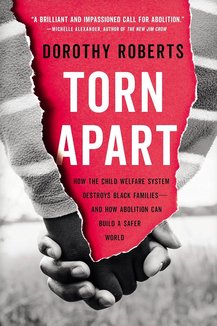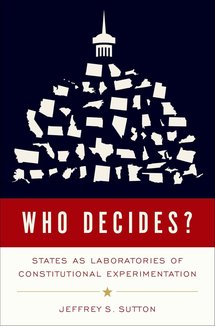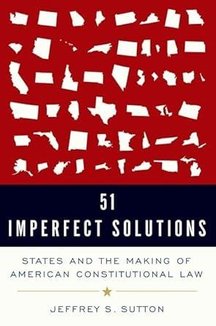Recommended Books

The Turnaway Study: Ten Years, a Thousand Women, and the Consequences of Having―or Being Denied―an Abortion
Author:
Diana Greene Foster Ph.D
ISBN 13:
978-1982141578
“If you read only one book about democracy, The Turnaway Study should be it. Why? Because without the power to make decisions about our own bodies, there is no democracy.” —Gloria Steinem The “remarkable” (The New Yorker) landmark study of the consequences on women’s lives—emotional, physical, financial, professional, personal, and psychological—of receiving versus being denied an abortion that “should be required reading for every judge, member of Congress, and candidate for office—as well as anyone who hopes to better understand this complex and important issue” (Cecile Richards). What happens when a woman seeking an abortion is turned away? To answer this question, Diana Greene Foster assembled a team of scientists—psychologists, epidemiologists, demographers, nurses, physicians, economists, sociologists, and public health researchers—to conduct a ten-year study. They followed a thousand women from across America, some of whom received abortions, some of whom were turned away. Now, for the first time, Dr. Foster presents the results of this landmark study in one extraordinary, groundbreaking book. Judges, politicians, and pro-life advocates routinely defend their anti-abortion stance by claiming that abortion is physically risky and leads to depression and remorse. Dr. Foster’s data proves the opposite to be true. Foster documents the outcomes for women who received and were denied an abortion, analyzing the impact on their mental and physical health, their careers, their romantic relationships, and their other children, if they have them. Women who received an abortion were better off by almost every measure than women who did not, and five years after they receive an abortion, 99 percent of women do not regret it. As the national debate around abortion intensifies, The Turnaway Study offers the first thorough, data-driven examination of the negative consequences for women who cannot get abortions and provides incontrovertible evidence to refute the claim that abortion harms women. Interwoven with the study findings are ten “engaging, in-depth” ( Ms. Magazine) first-person narratives. Candid, intimate, and deeply revealing, they bring to life the women and the stories behind the science. Revelatory, essential, and “particularly relevant now” ( HuffPost) , this is a must-read for anyone who cares about the impact of abortion and abortion restrictions on people’s lives.

Torn Apart: How the Child Welfare System Destroys Black Families--and How Abolition Can Build a Safer World
Author:
Dorothy Roberts
ISBN 13:
978-1541675469
An award-winning scholar exposes the foundational racism of the child welfare system and offers a “a brilliant and impassioned call for abolition” (Michelle Alexander, author of The New Jim Crow ) Many believe the child welfare system protects children from abuse. But as Torn Apart uncovers, this system is designed to punish Black families. Drawing on decades of research, legal scholar and sociologist Dorothy Roberts reveals that the child welfare system is better understood as a “family policing system” that collaborates with law enforcement and prisons to oppress Black communities. Child protection investigations ensnare a majority of Black children, putting their families under intense state surveillance and regulation. Black children are disproportionately likely to be torn from their families and placed in foster care, driving many to juvenile detention and imprisonment. The only way to stop the destruction caused by family policing, Torn Apart argues, is to abolish the child welfare system and liberate Black communities. Finalist for the Los Angeles Times Book Prize for Current Interest

Who Decides?: States as Laboratories of Constitutional Experimentation
Author:
Jeffrey S. Sutton
ISBN 13:
978-0197582183
A unique defense of Federalism, making the case that constitutional law in America--encompassing the systems of all 51 governments--should have a role in assessing the right balance of power among all branches of our state and federal governments. Everything in law and politics, including individual rights, comes back to divisions of power and the evergreen question: Who decides? Who wins the disputes of the day often turns on who decides them. And our acceptance of the resolution of those disputes often turns on who the decision maker is-because it reveals who governs us. In Who Decides , the influential US Appellate Court Judge Jeffrey S. Sutton focuses on the constitutional structure of the American states to answer the question of who should decide the key questions of public policy today. By concentrating on the role of governmental structure in shaping power across the 50 American states, Sutton develops a powerful explanation of American constitutional law, in all of its variety, as opposed to just federal constitutional law. As in his earlier book, 51 Imperfect Solutions , which looked at how American federalism allowed the states to serve as laboratories of innovation for protecting individual liberty and property rights, Sutton compares state-level governments with the federal government and draws numerous insights from the comparisons. Instead of focusing on individual rights, however, he focuses on structure, while continuing to develop some of the core themes of his previous book. An illuminating and essential sequel to his earlier work on the nature of American federalism, Who Decides makes the case that American Constitutional Law should account for the role of the state courts and state constitutions, together with the federal courts and the federal constitution, in assessing the right balance of power among all branches of government. Taken together, both books reveal a remarkably complex, nuanced, ever-changing federalist system, one that ought to make lawyers and litigants pause before reflexively assuming that the United States Supreme Court alone has the answers to our vexing constitutional questions.

51 Imperfect Solutions: States and the Making of American Constitutional Law
Author:
Judge Jeffrey S. Sutton
ISBN 13:
978-0190866044
When we think of constitutional law, we invariably think of the United States Supreme Court and the federal court system. Yet much of our constitutional law is not made at the federal level. In 51 Imperfect Solutions , U.S. Court of Appeals Judge Jeffrey S. Sutton argues that American Constitutional Law should account for the role of the state courts and state constitutions, together with the federal courts and the federal constitution, in protecting individual liberties. The book tells four stories that arise in four different areas of constitutional law: equal protection; criminal procedure; privacy; and free speech and free exercise of religion. Traditional accounts of these bedrock debates about the relationship of the individual to the state focus on decisions of the United States Supreme Court. But these explanations tell just part of the story. The book corrects this omission by looking at each issue-and some others as well-through the lens of many constitutions, not one constitution; of many courts, not one court; and of all American judges, not federal or state judges. Taken together, the stories reveal a remarkably complex, nuanced, ever-changing federalist system, one that ought to make lawyers and litigants pause before reflexively assuming that the United States Supreme Court alone has all of the answers to the most vexing constitutional questions. If there is a central conviction of the book, it's that an underappreciation of state constitutional law has hurt state and federal law and has undermined the appropriate balance between state and federal courts in protecting individual liberty. In trying to correct this imbalance, the book also offers several ideas for reform.